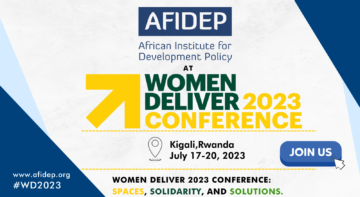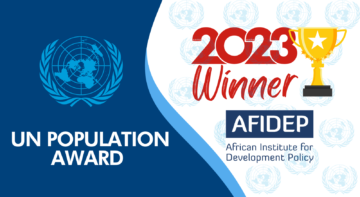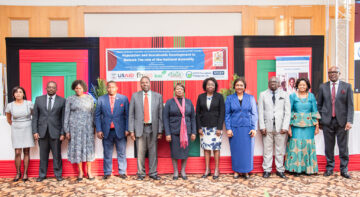News

As a build up towards the upcoming Malawi National Conference on Population and Development to be held between 6th and 8th September 2016 in Lilongwe, editors and journalists from across the country today participated in a training workshop aimed at sensitising them about the concept of the demographic dividend and its development prospects, and building their capacity to engage on the issue.
The workshop, which took place at the Golden Peacock Hotel in Lilongwe, was jointly facilitated by AFIDEP, UNFPA Malawi, the Ministry of Health (Reproductive Health Directorate) and the Ministry of Finance, Economic Planning and Development. Its overall aim was to strengthen the media’s role in Malawi’s efforts to harness a sizeable demographic dividend. Sessions addressed why the demographic dividend matters in Malawi’s development in the context the country’s medium and long-term development goals, as well as the global sustainable development goals (SDGs).
AFIDEP staff, namely Dr. Grace Kumchulesi, Knowledge Translation Scientist and Nissily Mushani, Policy and Advocacy Coordinator, shared the findings of the research study titled: Harnessing the Demographic Dividend to Accelerate Socio-economic Transformation and Economic Development in Malawi. The study findings showed that about 80 percent of Malawi’s population of 17.2 million are aged below 35 years and 46 percent are aged below 15 years. Malawi’s high birth rate (currently at an average of five births per woman) has declined slowly in the context of steadily declining child mortality over the past three decades. Consequently, its population has grown rapidly and the country has a high child dependency burden. This burden is recognised as one of the key bottlenecks for the country’s development agenda.
Being an increasingly popular way of conceptualising national development, stakeholders have acknowledged that it will take the input of different actors to demystify the demographic dividend and communicate it effectively to policymakers and the general public. Public engagement is one of the major ways in which the much needed public participation can be enhanced in order to make the demographic dividend the guiding model of development efforts in sub-Saharan Africa.
The media plays a critical awareness creation and agenda-setting role in society. As the UNFPA Malawi country representative, Dr. Dan Odallo noted, the angle that that the media takes on development issues determines how the public understands these. It is therefore critical that both journalists and editors understand the demographic dividend paradigm, and how they can contribute to driving investments to make this reality.
Further, Dr. Odallo emphasised on the importance of the media accurately reporting on the demographic dividend. “A social issue can either live or die in the eyes of the public depending on how it is presented by the media. This is why we have prioritised having an educative dialogue with journalists [and editors] so that we can spread a common message about this important approach to social and economic development for sub-Saharan African countries,” he noted.
Speaking at the workshop, AFIDEP’s Executive Director, Dr. Eliya Zulu, informed participants that the demographic dividend as a development concept is not new. Neither does it entail emphasis on some development spheres over others. According to Dr. Zulu, for a country to harness a sizeable demographic dividend, it should take an integrated approach to development characterised by simultaneous investments in each of the five key demographic dividend pillars or “wheels” namely: family planning, economic reforms and job creation, health, education and good governance.
“The demographic dividend concept can be traced back to the 1974 Cairo Conference on Population and Development when a delegation from India famously took the position that “development is the best contraceptive’. This debunked the earlier held belief that countries with large youthful populations could not achieve socio-economic transformation, as India went on to demonstrate,” said Dr. Zulu.
During the workshop, the editors expressed their commitment to having the media houses they represent take specific actions aimed at making the demographic dividend part of Malawi’s national agenda. Some of these included the allocation of space on different media platforms to create awareness on the different development aspects characterising the demographic dividend.
In addition, the editors committed to educating themselves further in order to engage policymakers and the general public on the issue from a well-informed standpoint. The editors also committed to more networking amongst themselves in order to create synergy and sustain the momentum on the demographic dividend agenda in Malawi. There was also a proposition to come up with a symbol for the demographic dividend, similar to those used for cancer and HIV advocacy, that gives a consistent face to the issue when carried across different media platforms.
AFIDEP and UNFPA Malawi will provide continuous support to those trained in order to strengthen their quest to be part of the socio-economic transformation of Malawi. Further, the country is at an advantage since it enjoys buy-in and government commitment given that the President, H.E. Prof. Peter Mutharika is a demographic dividend champion.
Related Posts





